2019 Videos and Audio
The Monterey Summer Symposium on Russia (MSSR) is a component of the Monterey Initiative in Russian Studies (MIR). The following are videos and audio from the MSSR 2019 program.
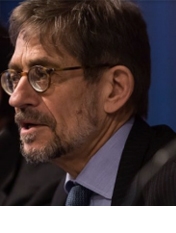
Keynote Address: Thomas Graham
Thomas Graham is a managing director at Kissinger Associates, Inc., where he focuses on Russian and Eurasian affairs. He was Special Assistant to the President and Senior Director for Russia on the National Security Council staff from 2004 to 2007 and Director for Russian Affairs on that staff from 2002 to 2004. From 2001 to 2002, he served as the Associate Director of the Policy Planning Staff of the Department of State. From 1998 to 2001, Mr. Graham was a senior associate in the Russia/Eurasia program at the Carnegie Endowment for International Peace. From 1984 to 1998, he was a Foreign Service Officer. His assignments included two tours of duty at the U.S. Embassy in Moscow, where he served as head of the political/internal unit and acting political counselor. Between tours in Moscow, he worked on Russian and Soviet affairs on the Policy Planning Staff of the Department of State and as a policy assistant in the Office of the Undersecretary of Defense for Policy. Graham is one of the founders and co-Directors of the Russian Studies Project at Yale.
In English

John R. Beyrle
John Beyrle was elected Chairman of the U.S. Russia Foundation in October 2018. Prior to this role, he served as an American diplomat for three decades in a career focused on the Soviet Union and Russia, and Central and Eastern Europe. He was twice appointed ambassador: to Bulgaria (2005-08), and to Russia (2008-12). During the latter assignment, Beyrle helped foster improved U.S.-Russian relations, highlighted by the signing of the New START nuclear arms reduction treaty.
Ambassador Beyrle’s diplomatic service included two earlier tours at the U.S. Embassy in Moscow, including as Deputy Chief of Mission. He served as counselor for political and economic affairs at the U.S. Embassy in the Czech Republic, and a member of the U.S. delegation to the CFE arms control negotiations in Vienna. His Washington assignments included special adviser to Secretary of State Colin Powell for the New Independent States, and director responsible for Russian policy on the staff of the National Security Council under President Clinton.
Ambassador Beyrle received the Presidential Distinguished Service Award from President Obama, and the Presidential Meritorious Service Award during the administration of George W. Bush. Secretary of State Hillary Clinton personally presented him with the Distinguished Service Award, the State Department’s highest honor. He retired from the Foreign Service in 2012 as a Career Minister, a diplomatic rank equivalent to a three-star general.
Ambassador Beyrle received a B.A. with honors from Grand Valley State University (1975) and an M.S. as a Distinguished Graduate of the National War College (1996), where he later taught as a visiting professor of national security studies. He speaks Bulgarian, Czech, French, German and Russian.
In English
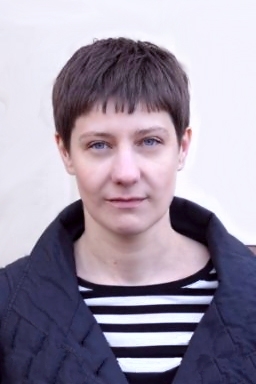
Irina Borogan
Irina Borogan is an investigative journalist and a deputy editor of Agentura.Ru, a watchdog of Russia’s secret services’ activities. In 2009 Borogan started a series of articles investigating the Kremlin’s campaign to gain control of civil society and strengthen the government’s police services under pretext of fighting extremism. The series was published in Ezhednevny Journal and on Agentura.Ru. Borogan is a regular commentator on the Radio Free Europe/ Radio Liberty and the BBC Russian service. Borogan also regularly makes comments on terrorism for the Moscow Times and writes for Foreign Policy and Foreign Affairs.
In Russian
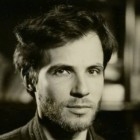
Filipp Dzyadko
Founder & Editor-in-chief of education platform «Arzamas» (arzamas.academy). In 2007 he defended a thesis on the reception of Ancient culture in the Russian literature of the XIX-th century, worked as latin language teacher, editor of «Esquire» magazine, editor-in-chief of «Bolshoi Gorod» magazine, TV-host on «Rain» TV-channel and and a radio host on «Culture» radio channel. In 2015 became a co-founder of education platform «Arzamas» with actress and TV presenter Anastasia Chukhrai. In 2015 launched a platform «Relikva» (relikva.com) dedicated to private memory.
In Russian
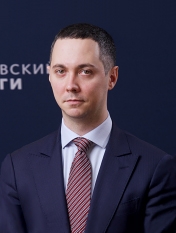
Alexander Gabuev
Alexander Gabuev is a senior fellow and the chair of the Russia in the AsiaPacific Program at the Carnegie Moscow Center. His research is focused on Russia’s policy toward East and Southeast Asia, political and ideological trends in China, and China’s relations with its neighbors—especially those in Central Asia. Prior to joining Carnegie, Gabuev was a member of the editorial board of Kommersant publishing house and served as deputy editor in chief of Kommersant-Vlast, one of Russia’s most influential newsweeklies. Gabuev started his career at Kommersant in 2007 working as a senior diplomatic reporter, as a member of then president Dmitry Medvedev’s press corps, and as deputy foreign editor for Kommersant. His reporting covered Russia’s relations with Asian powers and the connection between Russian business interests and foreign policy. Gabuev has previously worked as a nonresident visiting research fellow at the European Council on Foreign Relations (ECFR) and taught courses on Chinese energy policy and political culture at Moscow State University.
In Russian
- Russia and China in the 21 Century: Rivalry, Alliance, or Marriage of Convenience? (July 22)
video | audio - Economic Ties between Russia and the P.R.C. (July 23)
video | audio - Sovereign Socialist Democracy: Moscow and Peking’s Cooperation on Ideology and Domestic Policy (July 24)
video | audio - Armed Friendship: Russia and China’s Cooperation on Defense and Global Security (July 25)
video | audio
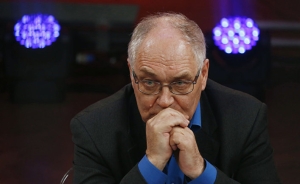
Lev Gudkov
Born in 1946, Moscow, Prof. Dr. Gudkov studied journalism, sociology, and philology at the Moscow State University. He completed his Post-graduate degree at the Institute for Philosophy of the USSR Academy of Sciences in 1977and completed his dissertation, “Candidate of the Philosophical Sciences” in 1979, and became a Doctor of Philosophy in 1995. Prof. Gudkov has worked at various institutions of the USSR Academy of Sciences since 1970. He has been a researcher in The Russian Centre for Public Opinion Research (VCIOM), Head of Department of Social and Political Studies since 1988. Levada Analytical Center (Levada-Center), Head of Department of Social and Political Studies, 2003-2006. Prof. Gudkov has been the Director of Levada Center since 2006. He is also the Editor-in-Chief of the magazine “Russian Public Opinion Herald” and is a lecturer at The Higher School of Economics.
In Russian
- The End of Crimean Patriotic Mobilization: A Disgruntled Society in 2019 (July 8)
video | audio - The Controversy Surrounding Stalin: Why is the Stalinist Myth Growing in Importance? (July 9)
video | audio - The Soviet and Post-Soviet Man: The History of a Research Project (July 10)
video | audio - Xenophobia, Antisemitism, and Racism in Modern Russia: The Special Characteristics of Current Russian Nationalism (July 11)
video | audio
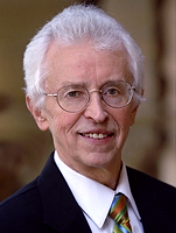
Siegfried Hecker
Siegfried S. Hecker is a professor (research) in the Department of Management Science and Engineering and a senior fellow at the Freeman Spogli Institute for International Studies (FSI) at Stanford University. He was co-director of CISAC from 2007-2012. From 1986 to 1997, Dr. Hecker served as the fifth Director of the Los Alamos National Laboratory. Dr. Hecker is an internationally recognized expert in plutonium science, global threat reduction, and nuclear security. Dr. Hecker joined Los Alamos National Laboratory as graduate research assistant and postdoctoral fellow before returning as technical staff member following a tenure at General Motors Research. He led the laboratory’s Materials Science and Technology Division and Center for Materials Science before serving as laboratory director from 1986 through 1997, and senior fellow until July 2005. Dr. Hecker’s research interests include plutonium science, nuclear weapons policy, nuclear security, and the safe and secure expansion of nuclear energy. Dr. Hecker has visited North Korea frequently in an unofficial capacity to assess the plutonium program at the Yongbyon Nuclear Scientific Research Center. Over the past 20 years, he has fostered cooperation with the Russian nuclear laboratories to secure and safeguard the vast stockpile of ex-Soviet fissile materials. Dr. Hecker’s research projects at CISAC focus on reducing the risks of nuclear terrorism worldwide and the challenges of nuclear India, North Korea, Pakistan, and the nuclear aspirations of Iran. Dr. Hecker has also published a two-volume book on the history of Russian-U.S. laboratory-to-laboratory cooperation since 1992.
In English
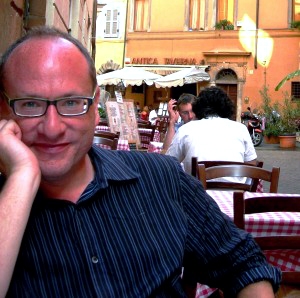
Michael Kimmage
Michael Kimmage is a professor of history at the Catholic University of America. From 2014 to 2017 he served in the Secretary’s Office of Policy Planning where he held the Russia/Ukraine portfolio. His latest book is forthcoming with Basic Books and is titled The Decline of the West: An American Story.
In English
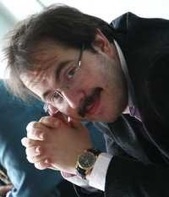
Vasily Kuznetsov
Dr. Vasily Kuznetsov (PhD in history, 2010) is the Head of the Center for Arab and Islamic Studies, Institute of Oriental Studies under the Russian Academy of Sciences; Associate Professor in the Faculty of World Politics, Moscow State University; senior policy adviser of the Russian Contact Group for an Inter-Libyan Settlement under the Russian Foreign Ministry and Parliament. He is author of several analytical reports for the International Discussion Club “Valdai”, for the Russian International Affairs Council (RIAC), author of a monograph on political transformation in post-revolutionary Tunisia written on fieldwork (2011-2017). He is also a regular contributor with Al-Monitor. Vasily A. Kuznetsov is interested in the study of socio-political processes, problems of statehood and religious life in contemporary Arab societies. He is involved in several Track II initiatives related to Russian policy in the Middle East.
In Russian
- Historical Context: the Soviet Union and the Middle East and North Africa (MENA) during the Cold War (August 5)
video | audio
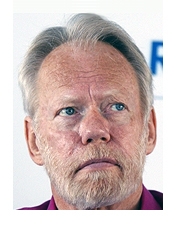
Robert Legvold
Dr. Legvold is Marshall D. Shulman Professor Emeritus in the Department of Political Science at Columbia University, where he specializes in the international relations of the post-Soviet states. He was Director of The Harriman Institute, Columbia University, from 1986 to 1992. Dr. Legvold’s areas of particular interest are the foreign policies of Russia, Ukraine, and the other new states of the former Soviet Union, U.S. relations with the post-Soviet states, and the impact of the post-Soviet region on the international politics of Asia and Europe. Legvold is a former trustee of the Carnegie Endowment for International Peace,and a member of various advisory boards, including those of the Committee on International Security Studies of the American Academy of Arts and Sciences, the Watson Institute for International Studies at Brown University, and the Foundation for International Peace and Democracy, led by Mikhail Gorbachev. He is a fellow of the American Academy of Arts and Sciences and a foreign member of the Russian Academy of Social Sciences.
In English
- U.S.-Russian Cold War: Does It Matter? (August 7)
*Georgy Arbatov Memorial Lecture Series Presented by the Graduate Initiative in Russian Studies in honor of Georgy Arkadyevich Arbatov (1923–2010)*
video | audio - Studying Russian Foreign Policy: Let Me Count the Ways (August 8)
video | audio - Russia, the Post-Soviet Space, and the International Political Order (August 9)
video | audio
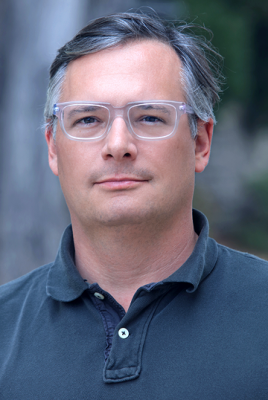
Jeffrey Lewis
Dr. Jeffrey Lewis is the Director of the East Asia Nonproliferation Program at the James Martin Center for Nonproliferation Studies (CNS). Before coming to CNS, Dr. Lewis was the Director of the Nuclear Strategy and Nonproliferation Initiative at the New America Foundation. Prior to that, he was Executive Director of the Managing the Atom Project at the Belfer Center for Science and International Affairs, Executive Director of the Association of Professional Schools of International Affairs, a Visiting Fellow at the Center for Strategic and International Studies and a desk officer in the Office of the Undersecretary of Defense for Policy. He is also a Research Scholar at the Center for International and Security Studies at the University of Maryland’s School of Public Policy (CISSM).
Dr. Lewis received his Ph.D. in Policy Studies (International Security and Economic Policy) from the University of Maryland and his B.A. in Philosophy and Political Science from Augustana College in Rock Island, Ill.
In English
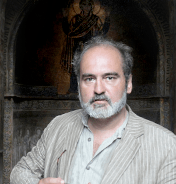
Alexei Lidov
Dr. Lidov is a world known art historian and Byzantinist, a specialist in Byzantine iconography, Christian sacred images and theory of art. Lidov is the founder and director of the Research Centre for Eastern Christian Culture in Moscow (since 1991), the head of the Department at the Institute for World Culture of Lomonosov Moscow State University, and a Full Member (academician) of the Russian Academy of Arts as well as a Member and Fellow of St. Catherine’s College at Oxford University. Lidov is the author of more than 100 research publications in many languages, among them 30 monographs, catalogues and collections of articles. He coined the term ‘hierotopy’ and established a new field of studies in the creation of sacred spaces (see ‘Alexei Lidov’ in Wikipedia, and www.hierotopy.ru)
In Russian
- The Byzantine Myth and European Identity in Modern Russia (July 3)
video | audio - Hierotopy as a Means of Understanding the World (July 5)
video | audio - The Icon and Iconic Consciousness in Russian Culture (July 5)
video | audio - New Jerusalem as the Dominant Model and Idea of Russian Civilization (July 8)
video | audio

Hanna Notte
Hanna Notte is a Political Officer with The Shaikh Group. She supports the organization’s engagement with Russia related to its Syria Track II Dialogue Initiative specifically, and also works on other Track II dialogues related to the MENA region. Hanna recently completed her DPhil on Russian-US cooperation in the Middle East at the University of Oxford (St. Antony’s College), from where she also received an MPhil in International Relations in 2014. She spent a year between 2015-2016 in Moscow on an ‘Alfa Fellowship’ with the Institute of Oriental Studies and the Carnegie Moscow Center. Other visiting research positions have included the IISS’ Middle East office in Manama, Bahrain and the Konrad-Adenauer-Foundation’s Syria/Iraq office in Beirut, Lebanon. Hanna holds a BA in Social and Political Sciences from the University of Cambridge and worked at Goldman Sachs’ London offices as a strategic equity analyst from 2010-2012. Her research interests focus on Russian foreign policy in the Middle East (especially the Levant and Iran) and Russian-U.S. relations. She is a German national who speaks Russian, Arabic and French.
In English
- Russia and Western Countries in MENA Today: Analyzing the Viability of Cooperation (the Syria Conflict) (August 5)
video | audio - Understanding the Drivers of Russian Foreign Policy Towards MENA Today: Political, Economic, and Other Drivers (August 6)
video | audio - Russia, Western Countries, and Prospects for Cooperation on the Non-proliferation of WMD (Syrian Chemical Weapons, the JCPOA) (August 7)
video | audio
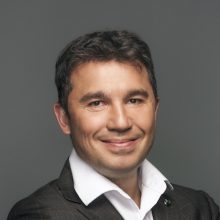
Victor Orlovsky
Victor Orlovsky has more then 20 years of experience in the financial technology space. He started his career in ABN AMRO serving in different managerial positions in Uzbekistan, Russia and Head Quarters in Amsterdam.
In 2001 Victor joined Alfa Bank (www.alfabank.ru – one of the leading Russian financial institutions) as the Chief Transformation Officer and oversaw the largest banking transformation project in Russia of the early 2000s. It resulted in the state-of-the-art business model and technological solution and made Alfa Bank a leader in innovative banking and the most efficient financial company in Russia and CIS for more than a decade.
In 2006 Victor became a partner at IBM Global Business Services. Victor oversaw FI and Insurance practices in Russia and CIS.
From 2008 to 2015 Victor continued his career in Sberbank (www.sberbank.ru). He started as Chief Technology Officer (2008-2013) and executive board member and then continued as Chief Digital Officer (2014-15).
Several times Victor was nominated as the best CTO of the year in Russia, Best CTO of the year in Europe (Oracle award), and was selected among the top 1000 most efficient managers in Russia (www.kommersant.ru). Victor was the member of supervisory boards of more than 10 Sberbank subsidiaries and banks; he was a founder and chairman of the Supervisory Board of Sberbank Technology (largest tech company in Russia) and Sberbank Services.
Since August 2015 Victor is a general partner of the Venture fund FortRoss Ventures (www.fortross.vc), he is an angel investor and entrepreneur.
FortRoss Ventures is investing in the growth stage startups in AI, IOT, Market places, Fintech and Cloud space. The focus countries are: US, Israel and Russia.
FortRoss Ventures is a true door-opener to Russian, CIS, CEE and Turkish markets leveraging their industry knowledge and strong partnership with largest corporations in these regions.
Victor lives and works in Menlo Park, CA.
In Russian
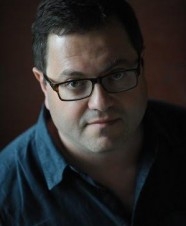
Arkady Ostrovsky
Arkady Ostrovsky is Russia and Eastern Europe editor for The Economist. Prior to this role, he was the Moscow Bureau Chief for the Economist reporting on the annexation of Crimea and the war in Ukraine among many other subjects. He joined the paper in March 2007 after 10 years with the Financial Times where he covered Russian politics and business, including the Yukos Affair. His articles were among the first to warn of the resurgence of the security state under Putin. At The Economist, Arkady also writes about Russia-US relations, European security, Russia and China, Ukraine, Georgia and other former Soviet republics.
In Russian
In English
- From the Other Shores: Translating Tom Stoppard. The Coast of Utopia and Cultural Interactions (July 30)
video | audio - Perestroika: The Role of Print Media in the Soviet Collapse and The Question of Generations (July 31)
video | audio - Programming Russia: The Role of Television in the 1990s and Today (August 1)
video | audio - Fakes, Games and Wars (August 2)
video | audio - A Conversation with Andrei Zorin
Russia and the West
video | audio
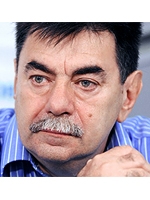
Emil Pain
Dr. Pain is General Director of the Centre for Ethno-Political Studies and Professor in political science at the National Research University, Higher School of Economics. Dr. Pain has published 13 books and over 400 articles, focusing on nationality politics, ethnic conflicts and terrorism problems in Russia, the Caucasus, and Central Asia. He was an Adviser on Nationality Issue to the Russian President B. Yeltsin from 1996 to 1999, and a Galina Starovoitova Fellow on Conflict Resolution at the Kennan Institute in Washington from 2000 to 2001. On September 16, 2004, the European Foundation “Tolerance” awarded Emil Pain a gold medal “for transcendent merits in sociological and historical studies promoting resolution of ethnic conflicts in Russian regions”.
In Russian
- Between Empire and Nation: The Main Ethnic and Political Tendencies of Russia (July 8)
Part I: video | audio
Part II: video | audio - The Religious Situation in Russia (July 9)
video | audio - Populism and Elitism in Modern Russia (July 10)
Part I: video | audio
Part II: video | audio - The Dynamics of Xenophobia in Russia (July 11)
video | audio
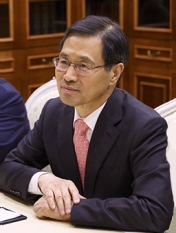
Ro-Byug Park
Ro-Byug Park most recently served as the Ambassador of the Republic of Korea to the Russian Federation. His current position is the Secretary General of the International Conference of Asian Political Parties (ICAPP). Ambassador Park holds a Postgraduate Diploma in International Relations from the London School of Economics, as well as a Ph.D. in History from the Diplomatic Academy of the Ministry of Foreign Affairs of the Russian Federation. His dissertation was on, “History of Korean Russian Relations, Trade and Economic Aspects (1884-1903).” Later, Ambassador Park was a Visiting Fellow at Georgetown University (2007-2008). Ambassador Park is author of several books, including “Twenty Years of Economic Relations between Korea and Russia (1884-1903)” and “Paradigms of International Relations.” Both books are in Korean. Ambassador Park has received several awards for his diplomatic service, most recently the Youngsan Diplomat of the Year Award from the Seoul Forum in March 2016. Ambassador Park has worked for the diplomatic corps in Switzerland, Russia, Uzbekistan, Myanmar and the United States.
In English
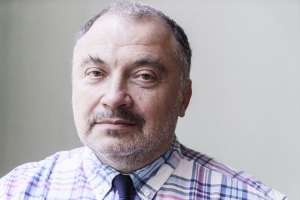
Nikolay Petrov
Nikolay Petrov is a professor and head of the Laboratory of Methodology of Regional Development Evaluation at the Higher School of Economics, Moscow. For many years, he was scholar-in-residence at the Carnegie Moscow Center, where he directed the Society and Regions project. He also heads the Center for Political-Geographic Research. Petrov is a columnist for the information agency RBC (RosBusinessConsulting), a member of the Program on New Approaches to Research and Security in Eurasia (PONARS Eurasia), a member of the Scientific Advisory Councilofthe Finnish Institute of International Affairs, and a member of the scientific boards of: The Journal of Power Institutions in Post-Soviet Societies; Russian Politics; Russian Politics & Law; and Region: Regional Studies of Russia, Eastern Europe, and Central Asia. During 1990–1995, he served as an advisor to the Russian parliament, government, and presidential administration.
In Russian
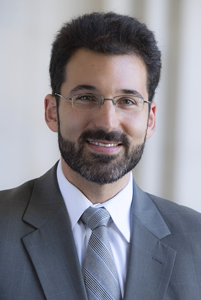
Matthew Rojansky
Matthew Rojansky is the Director of the Kennan Institute, as well as an adjunct professor at both Johns Hopkins SAIS and American University. Mr. Rojansky is an expert on U.S. relations with the states of the former Soviet Union, especially Russia, Ukraine, Belarus and Moldova. He has advised governments, intergovernmental organizations, and major private actors on conflict resolution and efforts to enhance shared security throughout the Euro-Atlantic and Eurasian region. Prior to entering his role with the Kennan Institute, from 2010 to 2013, Mr. Rojansky was Deputy Director of the Russia and Eurasia Program at the Carnegie Endowment for International Peace. There, he founded Carnegie’s Ukraine Program, led a multi-year project to support U.S.-Russia health cooperation, and created a track-two task force to promote resolution of the Moldova-Transnistria conflict. From 2007 to 2010, Mr. Rojansky served as executive director of the Partnership for a Secure America (PSA), where he worked on issues relating to arms control and nonproliferation. Founded by former congressman Lee Hamilton (D-IN) and former senator Warren Rudman (R-NH) with a group of two dozen former senior leaders from both political parties, PSA seeks to rebuild bipartisan dialogue and productive debate on U.S. national security and foreign policy challenges. While at PSA, Mr. Rojansky orchestrated high-level bipartisan initiatives aimed at repairing the U.S.-Russian relationship, strengthening the U.S. commitment to nuclear arms control and nonproliferation, and leveraging global science engagement for diplomacy. Mr. Rojansky serves as U.S. Executive Secretary for the Dartmouth Conference, a track-two U.S.-Russian conflict resolution initiative begun in 1960. He has lectured at colleges and universities throughout the United States, Russia and Europe. He is frequently interviewed on TV and radio, and his writing has appeared in the International Herald Tribune, the Washington Post, and Foreign Policy.
In English
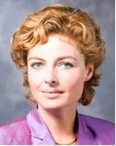
Asya Rudkovskaya
Dr. Asya Rudkovskaya is aSenior Digital Strategy Adviser at the World Bank. Dr. Rudkovskaya advises global business and government leaders on competitiveness and digital transformation strategies. In her role as Senior Digital Strategy Advisor for the World Bank, she is leading engagements with the governments of Russia and the Eurasian Economic Union on helping shape their Digital Transformation Strategies. Earlier, as Managing Director in Cisco’s Emerging Markets theater responsible for driving the company’s public sector business, she advised government leaders on the strategic use of digital technologies to achieve their national development objectives and sustainable national, regional and global competitive advantage. Dr. Rudkovskaya was also Chairman of the Cisco Trusted Advisor Club - a quarterly forum of visionaries and Global Fortune 500 senior executives aimed at exchanging thought leadership and best practice on the critical business issues of the day and the role of ICT in building strategies for future competitiveness. Prior to joining Cisco Dr. Rudkovskaya was Director of Michael Porter’s Harvard Business School Center for Middle East Competitive Strategy. She led operations in Turkey and the Near East, working with governments, private sector and NGOs on cluster-building, private-public sector partnerships, and developing strategies for national competitiveness.
In Russian

Yury Saprykin
Yury Saprykin is the author of Observation Points (2015) and has leadcourses on urban and youth culture for Russia’s leading educational institutions and online resources. He took part in the relaunch of the analytical website Slon.ru and Russia’s oldest English-language publication, The Moscow Times. In the 2000s he was editor-in-chief of the journal, Afisha, a publication largely responsible for forming the tastes and values of the new educated urban class, the generation of “Russian Europeans.” He is a graduate of MGU’s Department of Philosophy.
In Russian
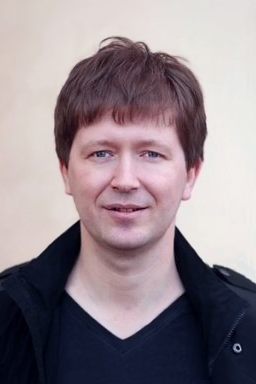
Andrei Soldatov
Andrei Soldatov is a Russian investigative journalist, co-founder and editor of Agentura.ru, a watchdog of the Russian secret services’ activities. Soldatov regularly makes comments on terrorism and intelligence issues for Vedomosti, Radio Free Europe and the BBC. He is a columnist for Ezhednevny Journal and The Moscow Times. Since the autumn 2010 Soldatov writes for Foreign Policy and Foreign Affairs.
In Russian
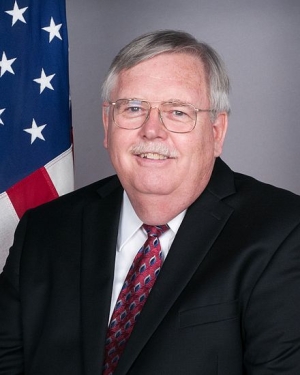
John Tefft
Ambassador John F. Tefft is a retired United States diplomat. He was a career Foreign Service Officer for more than 45 years, completing his service as the U.S. Ambassador to the Russian Federation from 2014 to 2017. Prior to that he served as the U.S. Ambassador to Lithuania from 2000 to 2003, Ambassador to Georgia from 2005 to 2009, and Ambassador to Ukraine from 2009 to 2013. He worked from 2004 to 2005 as the Deputy Assistant Secretary of State for European and Eurasian Affairs responsible for U.S. relations with Russia, Ukraine, Belarus, and Moldova.
Ambassador Tefft originally retired from the Foreign Service in September 2013 and served as Executive Director of the RAND Corporation’s Business Leaders Forum from October 2013 to August 2014 until his recall to duty and confirmation as U.S. Ambassador to the Russian Federation.
In English
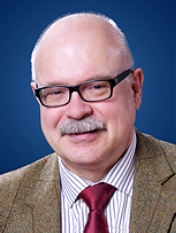
Dmitri Trenin
Dr. Dmitri Trenin, Director of the Carnegie Moscow Center, is chair of its Foreign and Security Policy Program. He has been with the Carnegie Moscow Center since its inception in 1993. He retired from the Russian Army in 1993. From 1993–1997, Trenin held a post as a senior research fellow at the Institute of Europe in Moscow. In 1993, he was a senior research fellow at the NATO Defense College in Rome. He served in the Soviet and Russian armed forces from 1972 to 1993, including experience working as a liaison officer in the external relations branch of the Group of Soviet Forces (stationed in Potsdam) and as a staff member of the delegation to the U.S.-Soviet nuclear arms talks in Geneva from 1985 to 1991. He also taught at the War Studies Department of the Military Institute from 1986 to 1993. Dr. Trenin’s lectures addressed U.S.-Russian relations, Russian foreign policy, and the enduring significance of Russia to the United States.
In Russian
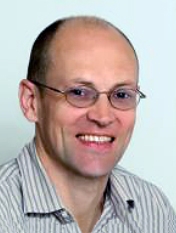
Andrei Tsygankov
Dr. Andrei P. Tsygankov is Professor at the departments of Political Science and International Relations at San Francisco State University. A Russian native, Tsygankov is a graduate of Moscow State University (Candidate of Sciences, 1991) and University of Southern California (Ph.D., 2000). He published several books in English and Russian including Anti-Russian Lobby and American Foreign Policy (2009), Russia and the West from Alexander to Putin (2012), and The Strong State in Russia (2014), as well as many journal articles.
In Russian
- The Conditions of Russia’s Foreign Policy and Strategy (July 1)
video | audio - Russia and the West Before the Fall of the USSR (July 1)
video | audio - The Post-Soviet Zig-Zagging of Russia’s Foreign Policy (July 2)
video | audio - The Modern-Day Confrontation Between Russia and the U.S. (July 3)
video | audio
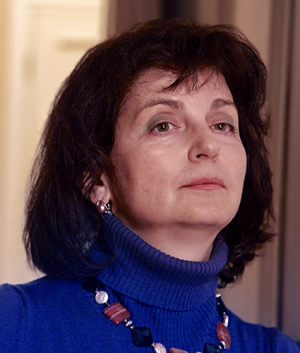
Tatiana Yudenkova
Tatiana Yudenkova holds a Ph.D. in Art History and heads the late 19th–early 20th century painting department at the State Tretyakov Gallery in Moscow. Additionally, she is a leading researcher in the division of Russian art of the 18th–early 20th century at the Research Institute of the Russian Academy of Arts. She has authored over 100 scholarly and general articles on the history of Russian art and the problems of collecting art in the second half of the 19th century. She has served as the curator for a series of exhibits by the Tretyakov Gallery in Moscow, as well as in Russia and abroad. She is the curator of the Ilya Repin exhibit (Tretyakov Gallery, Moscow 2019).
In Russian
- Self-determination of an Artist: Ivanov, Bryullov and Fedotov. Art of the Middle of the 19th Century (July 11)
video | audio - Ideal and Reality: The Mundane and the Artistic. Russian Art of the 1860–1880s: (Genre and Landscape Painting) (July 11)
video | audio - Sociopolitical History or Eternal Theme (July 12)
video | audio - The Search for National Self-Identity (July 15)
video | audio - Collecting Russian and European Art in Russia: From Private Collections to Museums (July 16)
video | audio - The Russian Path: From Dionisius to Malevich — Exhibition in the Vatican Museums (2018–2019) (July 18)
video | audio
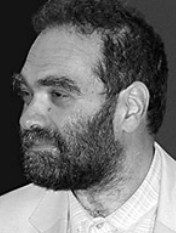
Andrei Zorin
Dr. Andrei Zorin is a Professor of Russian and a Fellow of New College at Oxford University as well as a professor in the Russian Presidential Academy of National Economy and Public Administration. He is a member of the editorial boards of the journals «New Literary Observer», «Slavic Review», and «Cahiers de Monde Russe». His areas of specialization are Russian Literature and Russian Cultural History, especially of the XVIII- XIX centuries. His research includes Russian literature and culture of the 18th – beginning of the 19th centuries in the European context, the cultural history of emotions, and the history of the cultured community in Russia and in the USSR. Dr. Zorin graduated from Moscow State University (1978) and completed his Dissertation (1983) and Habilitation (2000) also at Moscow State University.
In Russian
- Basic Myths of Russian Culture: The Concept of the Transformational Leap in Russian Culture (July 29)
video | audio - Basic Myths of Russian Culture: The Faith – A Round Trip from Orthodoxy to Communism – Religion and Ideology in Russian History (July 29)
video | audio - Basic Myths of Russian Culture: Princes, Czars, General Secretaries and Presidents – the National Attitude to the Power and the Ruler (July 30)
video | audio - Basic Myths of Russian Culture: The West – the History of Love and Hatred, Westernized Elites in Russian History (August 1)
video | audio - A Conversation with Arkady Ostrovksy: Russia and the West (August 3)
video | audio - Basic Myths of Russian Culture: The Myth of “Narod” – The Changing Meaning of “Russianness” – the Ethnic, the Religious, the Social and the Ideological in the History of National Identity (August 5)
video | audio - Basic Myths of Russian Culture: The Poet – Russian Literature as a Cultural Institution (August 6)
video | audio - Basic Myths of Russian Culture: Russian Woman – History and Mythology (August 7)
video | audio - Basic Myths of Russian Culture: The Ways to Survive – Rebellion and Flight (August 8)
video | audio
